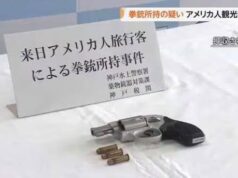Modi govt had announced 33% reservation for women in paramilitary forces but barely 5% of the personnel in these forces are women.
Three years after Home Minister Rajnath Singh announced a 33 per cent reservation for women in all the Central Armed Police Forces, the forces are struggling to adhere to the affirmative action.
Such is the struggle that the Central Industrial Security Force (CISF), which has a mere 5.5 per cent women in its ranks, has the best gender representation among these paramilitary forces. Of the 1,56,013 personnel in the CISF, only 8,588 are women.
The CISF protects critical infrastructure of the country, including airports, atomic energy plants, space installations, defence production units and coal fields.
The Central Reserve Police Force (CRPF), which is the largest paramilitary force in the country for law and order duties, has 2,96,382 personnel, of whom just 7,824 or 2.64 per cent are women. The CRPF personnel are posted in Left-wing extremism-hit areas and also in Jammu and Kashmir.
The other forces fare no better.
The Indo-Tibetan Border Police (ITBP), which has a strength of 80,000 personnel, has 2,000 women among them — a total of 2.5 per cent.
The Border Security Force (BSF) has 2,45,000 personnel, of whom only 5,129 are women, which is 2.12 per cent, while the Sashastra Seema Bal (SSB) is the worst in this regard as it has only 1,817 women in its total strength of 98,000 personnel, which works out to 1.85 per cent.
Infographic by Arindam Mukherjee | ThePrint
Also read: Home ministry data shows paramilitary forces are short of over 61,000 personnel
Hard postings, lack of privacy dissuade women
In 2016, the Modi government had decided to reserve 33 per cent posts at the constable level for women in CRPF and CISF, to begin with, and 14 to 15 per cent posts at the constable level in the border guarding forces such as the BSF, SSB and ITBP in a phased manner.
Authorities at the forces now cite a lack of sufficient applicants for the poor numbers.
According to a BSF officer, women do not wish to take up “hard postings” due to their “familial engagements”.
“It is difficult to encourage women to take up these posts as most of them are married and have a family to take care of,” the officer said. “No matter how much we try to convince them, they do not wish to leave their husbands and children to go to far-off places. Also, forces require a lot of discipline and it becomes difficult for them to manage.”
Another major problem, the officer said, is a lack of privacy.
“Also, most postings in the border guarding forces are in remote areas, where sometimes even the basic amenities are not available,” he said. “These are practical difficulties.”
Small initiatives but no pan-India plan
A CISF officer said paramilitary forces do have forums and meetings where they discuss the need to bring in more women.
“We do have discussions on forums to encourage women to be a part of the forces,” the CISF officer said. “In many of our films and advertisement, we have women personnel in the forefront representing the force, which we think may appeal to women and they are encouraged to join, but it has not helped much.”
“We also encourage women to join the force through social media but the response is not very positive,” an ITBP officer said. “Most candidates tell us that as a woman they have a lot more responsibilities, and that is what stops them from applying or joining.”




